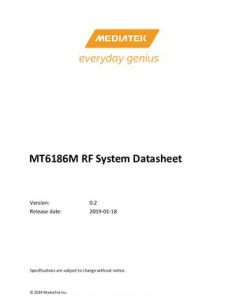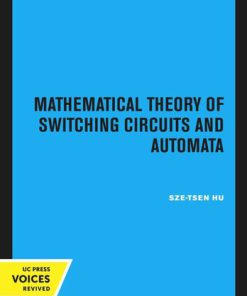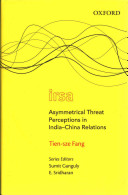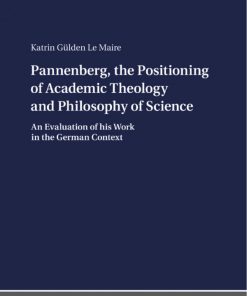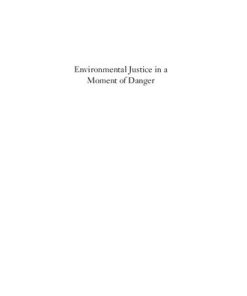Middle Knowledge and Biblical Interpretation Luis de Molina Herman Bavinck and William Lane Craig 1st edition by Sze Sze Chiew 3631672543 9783631672549
$50.00 Original price was: $50.00.$25.00Current price is: $25.00.
Middle Knowledge and Biblical Interpretation Luis de Molina Herman Bavinck and William Lane Craig 1st edition by Sze Sze Chiew – Ebook PDF Instant Download/Delivery: 3631672543, 9783631672549
Full download Middle Knowledge and Biblical Interpretation Luis de Molina Herman Bavinck and William Lane Craig 1st edition after payment
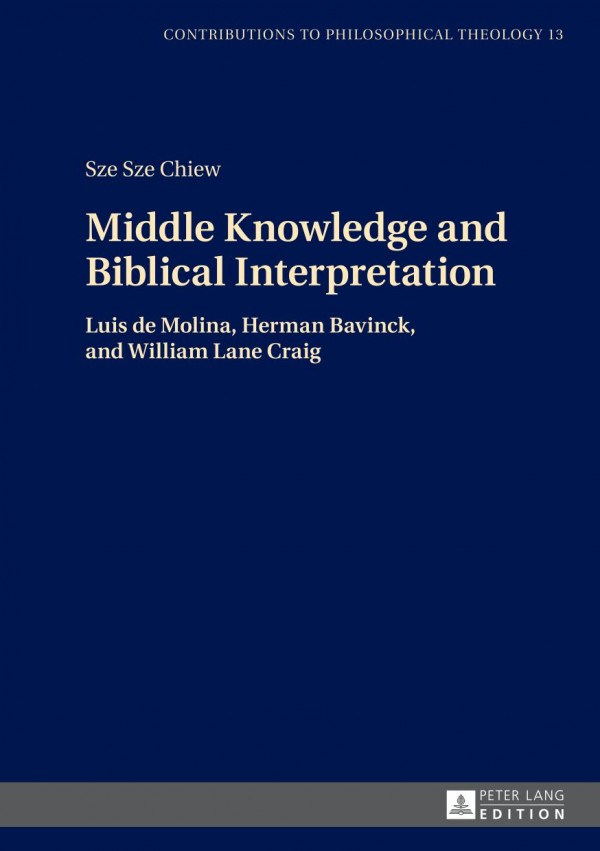
Product details:
ISBN 10: 3631672543
ISBN 13: 9783631672549
Author: Sze Sze Chiew
If God knows human actions in advance, do humans really have freedom of choice? Throughout the centuries various solutions have been offered as to how to retain or reconcile both the concepts of divine omniscience and human freedom. One solution focuses on the idea of middle knowledge. This theory originates with the Spanish Jesuit Luis de Molina, was contested by Reformed theologians such as Herman Bavinck, and makes a remarkable comeback among present-day analytical philosophers such as William Lane Craig. Apart from a wealth of philosophical considerations, the appeal to biblical texts also plays an important role in the work on middle knowledge by each of these thinkers. The book examines their writings and investigates how contemporary biblical scholars interpret the biblical texts used by them. The author elaborates a creative proposal as to how these gained insights apply to the theory of middle knowledge and what this means for our overall evaluation of this theory.
Middle Knowledge and Biblical Interpretation Luis de Molina Herman Bavinck and William Lane Craig 1st Table of contents:
1 Introduction
1.1 Foreknowledge and Freedom: Some Initial Observations
1.1.1 Theoretical and Practical Issues
1.1.2 A Preliminary Contour of What Follows
1.2 The Analytical Discussion: A State of the Question
1.2.1 Outlining the Problem
1.2.2 The Boethian, Ockhamist, Open Theist, and Molinist Solutions
1.2.3 Some Concluding Remarks on the Solutions
1.3 An Intriguing Solution: The Theory of Middle Knowledge
1.4 Approaching the Problem: Re-contextualizing the Issue in Its Biblical Context
1.4.1 Outlining the Inquiry
1.4.2 Methodological Considerations
1.5 An Overview: Content of Chapters
2 Middle Knowledge in the 16th–17th Centuries: Luis de Molina
2.1 Introduction
2.1.1 Molina’s Role in the Debate
2.1.2 An Outline of What Follows
2.2 Scientia Media
2.2.1 Dispute between the Jesuits and Dominicans
2.2.2 Divine Knowledge: Natural, Middle, and Free
2.2.3 Objections Raised in the 16th–17th Centuries
2.3 Scriptural Grounds of Molina’s Views
2.3.1 Scriptural Ground of Molina’s Views of Divine Foreknowledge?
a. Psalm 139:3–5
b. Isaiah 41:23 and 48:5
c. Hebrews 4:13
d. John 14:29
2.3.2 Scriptural Grounds of Molina’s Knowledge of Counterfactuals?
a. 1 Samuel 23:6–13
b. Matthew 11:20–24
2.4 Evaluation
2.4.1 Theological and Hermeneutical Issues in Molina’s Views
2.4.2 The Role of the Bible and Its Relation with Molina’s Views
2.5 Conclusion
3 Middle Knowledge and Reformed Theology: Herman Bavinck
3.1 Introduction
3.1.1 Bavinck’s Role in this Study
3.1.2 An Outline of What Follows
3.2 The Reformed Doctrine of Scientia Dei
3.2.1 The Principia of the Reformed Orthodox
3.2.2 The Problem of Scientia Media
3.3 Bavinck’s Organic Motif in Scripture and Theology
3.3.1 The Organic Nature of Scripture
3.3.2 The Organic Relationship between Scripture and Theology
3.4 Bavinck’s Discussion of Divine Foreknowledge
3.4.1 Divine Knowing: Its Manner, Objects, and Degree
3.4.2 Bavinck’s Criticism of Middle Knowledge
3.5 Evaluation
3.5.1 Molinism and Reformed Orthodoxy: Scientia Dei and Sola Scriptura
3.5.2 Bavinck and Reformed Orthodoxy: Similarities and Differences
3.5.3 Bavinck’s Method of Theology: The Role of the Bible
3.6 Conclusion
4 Middle Knowledge in Recent Studies: William Lane Craig
4.1 Introduction
4.1.1 Craig’s Role in the Debate
4.1.2 An Outline of What Follows
4.2 Craig’s Views of Foreknowledge and Freedom
4.2.1 The Logical Order of Foreknowledge and Freedom
4.2.2 The Logical Possibility of Foreknowledge
4.3 Craig’s Theory of Middle Knowledge
4.3.1 Three Logical Moments of God’s Knowledge
4.3.2 Difference from Classical Defense
4.4 A Survey of Recent Objections against Middle Knowledge
4.4.1 Objections of Theoretical Issues
4.4.2 Objections of Practical Issues
4.4.3 Objections Comprising a Mixture of Theoretical and Practical Issues
4.5 The Role of the Bible in Craig’s Discussions
4.5.1 Biblical Evidences of God’s Comprehensive Knowledge
4.5.2 Biblical and Theological Evidence of Middle Knowledge
a. Scriptural Indications
b. Theological Ramifications
4.6 Evaluation
4.6.1 Biblical Grounds of Evaluation
a. 1 Samuel 23:6–13 and Matthew 11:20–24
b. “Repenting Texts”
4.6.2 Theological Ground of Evaluation
a. Divine Prescience
b. Divine Existence
c. Providence and The Problem of Evil
d. Predestination and Freedom
4.6.3 Philosophical Ground of Evaluation
4.7 Conclusion
5 The Canonical Approach of Brevard Childs and The Hermeneutical Approach of Anthony Thiselton
5.1 Introduction
5.1.1 The Role of Childs and Thiselton in this Study
5.1.2 An Outline of what Follows
5.2 A Description of Childs’ Canonical Approach
5.2.1 Two Key Assumptions of Childs’ Canonical Approach
5.2.2 Six Features of Childs’ Exegesis
a. The Authority of Scripture
b. The Literal and Spiritual Senses of Scripture
c. The Two Testaments of Scripture
d. The Divine and Human Authorship of Scripture
e. The Christological Content of Scripture
f. The Dialectical Understanding of the History of Scripture
5.2.3 Childs’ Application of the Canonical Interpretation of the Bible
a. First Avenue: Discerning the Plain Sense of the Text
b. Second Avenue: An Intertextual Dialogue between the Two Voices
c. Third Avenue: Discerning a True Witness to the Living God
5.2.4 Concluding Observations: Canon, Community, and Theological Continuity
5.3 A Description of Thiselton’s Approach
5.3.1 Hermeneutical Currencies
a. The Meaning and Scope of Hermeneutics
b. Philosophy and Hermeneutics
5.3.2 Biblical Interpretation as the Fusion of Two Horizons
a. “Engaging” and “Enlarging” Horizons
b. Multidisciplinary and Interdisciplinary Practices
5.3.3 Concluding Observations: Hermeneutics, Philosophy, and Doctrine
5.4 Conclusion
6 A Possible Theological Appropriation of the Bible
6.1 Introduction
6.1.1 Where Do We Stand Now?
6.1.2 An Outline of What Follows
6.2 A Possible Theological Appropriation of the Bible
6.2.1 The Beginning and Ending of the Knowledge of God: The Bible
6.2.2 Encountering the Living God: The Lordship of the Triune God
6.2.3 Working towards a Coherent Biblical Vision of God: Creedal Context
6.2.4 Relating Scripture and Theology: The Larger Context of Bible and Its Method
6.2.5 Responding with Obedience: Faith Seeking Understanding
6.3 Concluding Evaluation of Molina, Bavinck, and Craig
6.3.1 The Theological Scope of Scriptural Texts
People also search for Middle Knowledge and Biblical Interpretation Luis de Molina Herman Bavinck and William Lane Craig 1st:
luis de molina middle knowledge
molina middle knowledge
luis de molina books
middle knowledge explained
Tags:
Sze Sze Chiew,Middle,Knowledge,Interpretation
You may also like…
Religion & Spirituality - Bible
Politics & Philosophy - International Relations
Uncategorized
Politics & Philosophy - Government & Politics
Environmental Justice in a Moment of Danger 1st Edition Julie Sze



